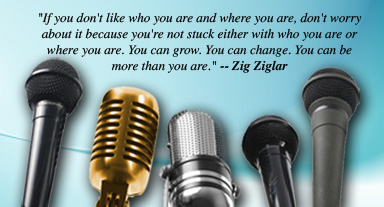So you’ve given your speech, you’ve answered the audience’s questions, you’ve made your concluding remarks and – phew! –you’ve breathed a sigh of relief because your presentation is over and it’s time to relax.
Not so fast! I hate to break it to you, but you’re not quite done yet. You still need to get some feedback.
You can learn a lot about your presentation – and your presentation skills – by asking the audience for some constructive criticism. And one of the easiest ways to do so is by distributing comment cards or feedback forms to the audience.
Some prefer to distribute them at the end of the presentation, as handouts can often be distracting to the audience. Others prefer to distribute them before the presentation, so that audience members can take notes as the talk progresses. It’s a matter of personal preference, really.
What sort of questions should you include on your feedback form?
Ask questions about content: Was the material interesting? Was it easy to understand? Was there one part in particular that stood out for them? What would they have liked to hear more about? What would they have liked to hear less about? Did they come away learning something new?
And ask questions about your presentation skills: Did you speak loud enough? Clear enough? How was the pace – too slow, too fast or just right? Was there enough audience interaction?
Be sure to also include a section for general comments. And don’t be too concerned if most of the answers you receive are unspecific or trite. In many cases, audience members are in a rush and don’t have time to fully analyze your presentation, or they may shy away from giving criticism, especially negative criticism. But no matter how many generic or irrelevant comments you receive, you’re sure to receive a few insightful, valuable and constructive criticisms as well. These are the ones that matter, as these are the ones that will help you improve your presentation.
Another good idea is to ask your audience for feedback directly. Take the time to chat with a few audience members after your presentation, and don’t be afraid to ask them for their opinions. Be calm and non-threatening, and make sure your questions are open-ended. You want them to really think about what they got out of your presentation and to give honest and objective feedback.
Once it’s all said and done, gather your audience’s criticisms and gather your thoughts and make the most of them by crafting a new and improved talk. I promise both you and your presentation will be better for it.
For more on the important questions you should be asking your audience members after your presentation, check out the teleseminar “Lessons Learned From the Toughest Audiences in the World” by motivational business speaker Mark Scharenbroich. (Scroll down to the ninth seminar on the page.)
And for information on making the most of your audience’s feedback, check out Tim Sanders’ teleseminar recording “Creating Fresh Content From Your Audience’s Knowledge, Stories and Questions.” (Scroll down to the seventh seminar on the page.) In it he explains how to “use your talks, blogs, tweets and other vehicles to uncover what your audiences and target market know and want to know.”
How do you get feedback about your presentations? Share your tips with us on the Inspiring Speakers Facebook page today!


